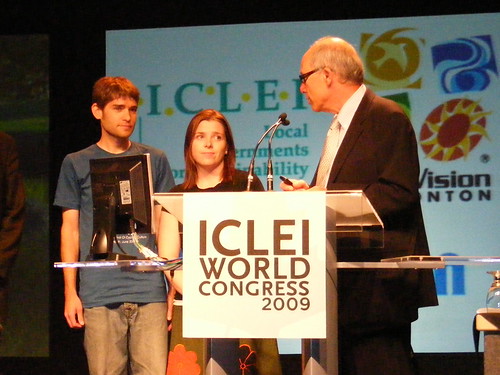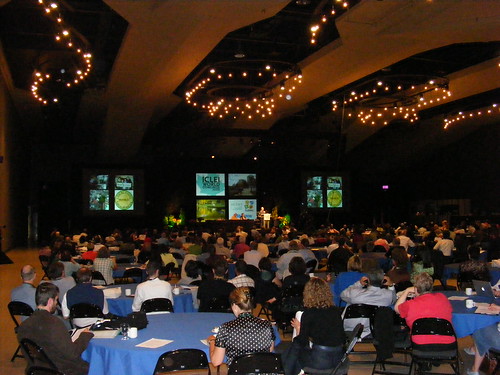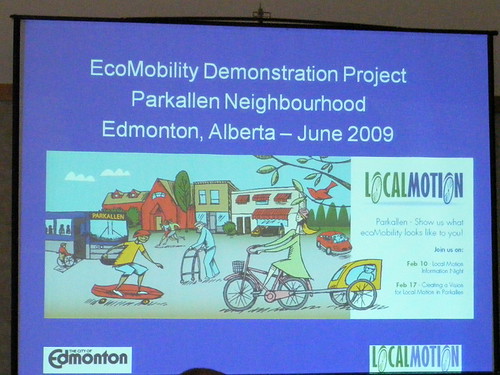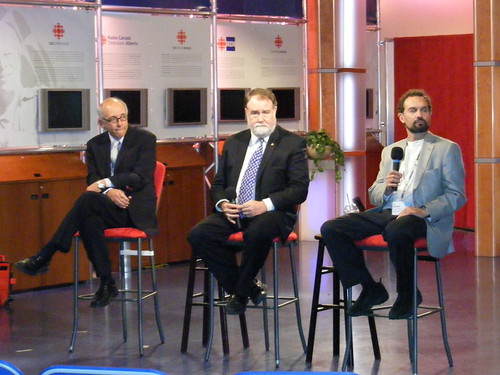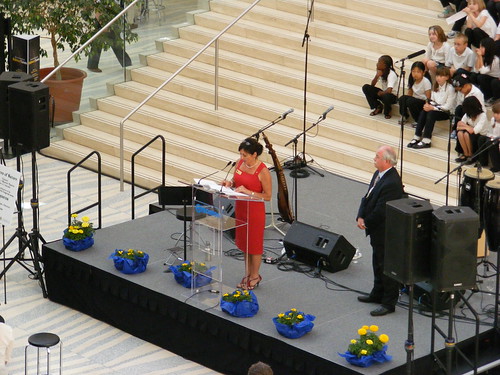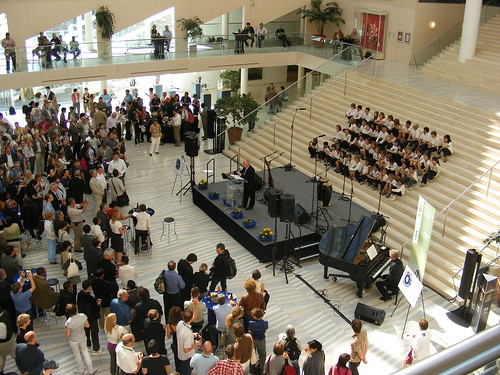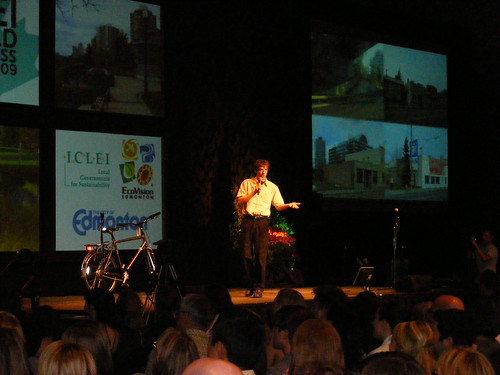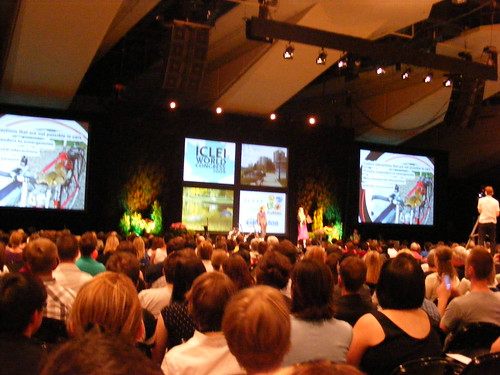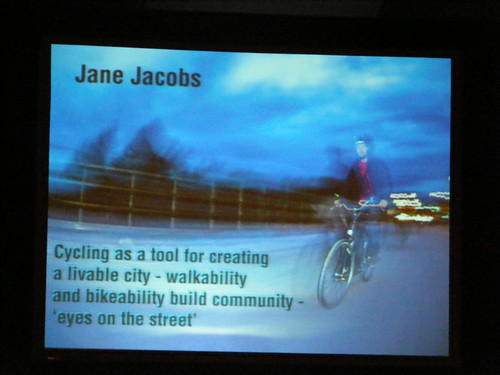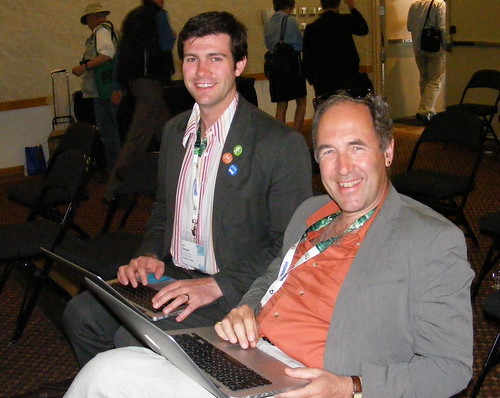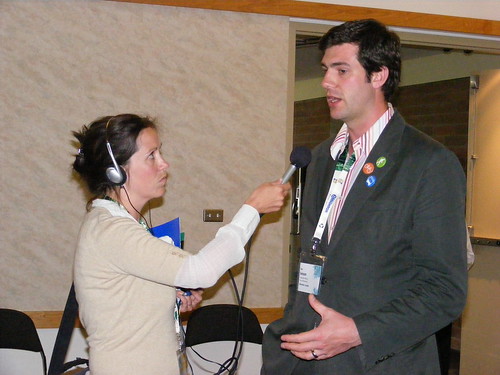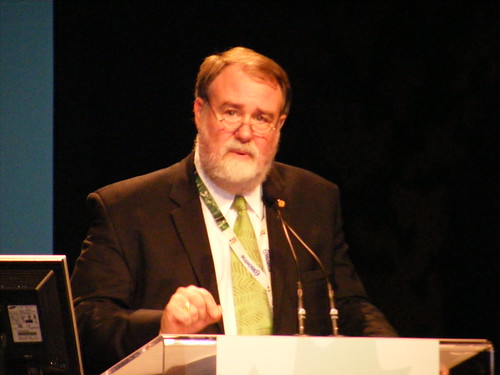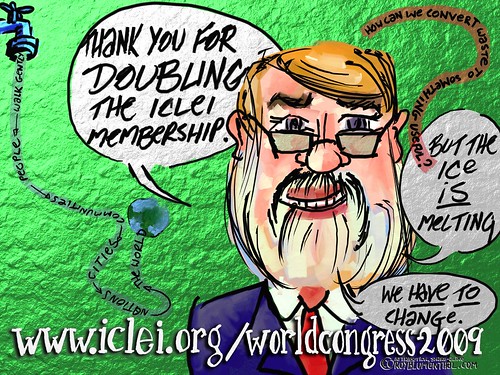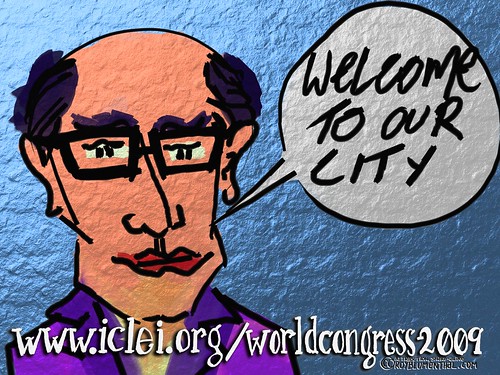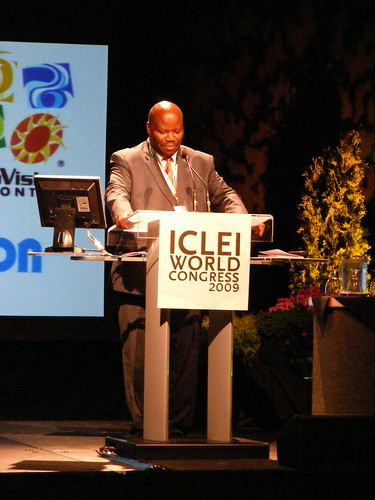Over the past week, I have had the privileged of attending and observing many of the sessions and keynote speeches at the ICLEI 2009 World Congress in Edmonton. The conference has left me hopeful and encouraged about the opportunities for sustainability in our cities. In Canada, as in many other countries, it has become clear that municipalities are light years ahead of national, state, and provincial governments in generating innovative initiatives and strategies to improve the sustainability of our communities.
Watching, meeting, and conversing with many of the over 620 delegates has left me feel optimistic. Originating from cities across North America, Asia, Europe, and Africa, the conversations and debates I observed at this Congress didn’t touch on political partisanship or ideology, but on actual ideas and direction (an increasing rarity among the national and provincial debates in Canada).


During his speech to delegates on June 17, Australian scientist Peter Newman made some interesting points having to do with the current economic downturn. Newman suggested that the downturn in the world economy provides states the opportunity to create “the global green new deal.” It may seem far fetched that an overly natural resource dependent jurisdiction such as Alberta would embrace new great change, but if “the future is to be smart and sustainable,” as Newman suggested, Albertans should be pressuring their elected representatives not to be left behind.
While no one I spoke to at the conference suggested that the need for fossil fuels is going to disappear anytime soon, other oil producing jurisdictions are having serious debates about the ethics of their precious resources. In a conversation with a delegate from the City of Oslo in Norway, he explained some of the serious ethical debates that are taking place on a national level in his country. As Norway is also largely dependent on natural resource revenues, it seems like it and the Province of Alberta should be facing a number of the same ethical challenges.
The Norwegian pointed out that while Statoil (Norway’s national oil company) had recently purchased a large amount of shares in the North American Oil Sands Corporation (a deal that is reported to be worth $2.2CND billion), the investments in Alberta’s oil sands has spurned a national debate around the ethics of financial dependence on an unsustainable and environmentally damaging method of extracting oil.
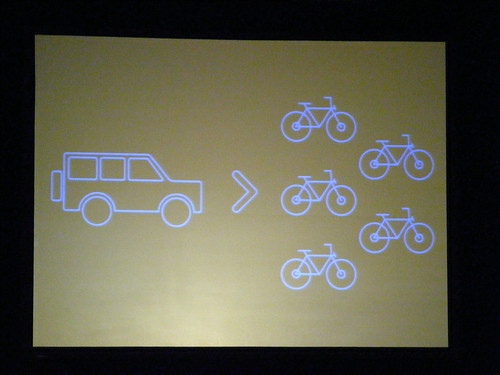

During our conversation, the Norwegian made an observation that as an older society, the debate around oil and dependence on non-renewable resources in his country appeared to be more mature than the relatively young debate in Alberta. Although he was quick to clarify that he wasn’t making a judgment, I’m not sure he was far off the mark. While Norwegians have serious national debates about whether or not to simply leave the oil underneath the ground and live off the interest of their geographical resources, Albertans seem to get easily caught up in the staccato boom and bust cycles, all the while forgetting that we are the owners of the resource. As the owners of the resource, it is our responsibility to drive the debate.
Attending the ICLEI 2009 World Congress has taught me that while we do many things well in Edmonton, that there are many areas where we can improve. If “sustainable technologies work best at the local level of government,” as Newman suggests, where do our local government’s start? Referencing a recent article in the Telegraph, speaker Richard Littlemore suggested that “rebuilding our infrastructure in an intelligent way is the only chance we have.”
Collaboration and information sharing is a key to rethinking and rebuilding our cities. A partnership between the World Economic Forum, the World Bank, the International Energy Agency and ICLEI has produced the Slim City initiative that provides a framework example of how this kind of collaboration can take place.


TOD, POD, and GOD (transit oriented development, pedestrian oriented development and green oriented development) are some of the urban development strategies proposed by Newman in his speech and his book Resilient Cities: Responding to Peak Oil and Climate Change. While some North American cities already provide positive examples of TOD (which can save 50% in car use and 20% of income) and POD development, the ominous sounding GOD initiatives may be less familiar.
The German cities of Vauban and Frieburg are considered to be successful examples of how green-oriented development can produce sustainability. A car-free village powered by solar energy, mobilized by light rail transit and bicycles, and filled with space to grow food locally sounds Utopian, and it directly challenges the comfortable culture of over consumption.
Change is never easy, but the over 620 ICLEI delegates who traveled to Edmonton from around the world this past week have made me hopeful that there is at least one level of government that is prepared to rise to the challenge.









